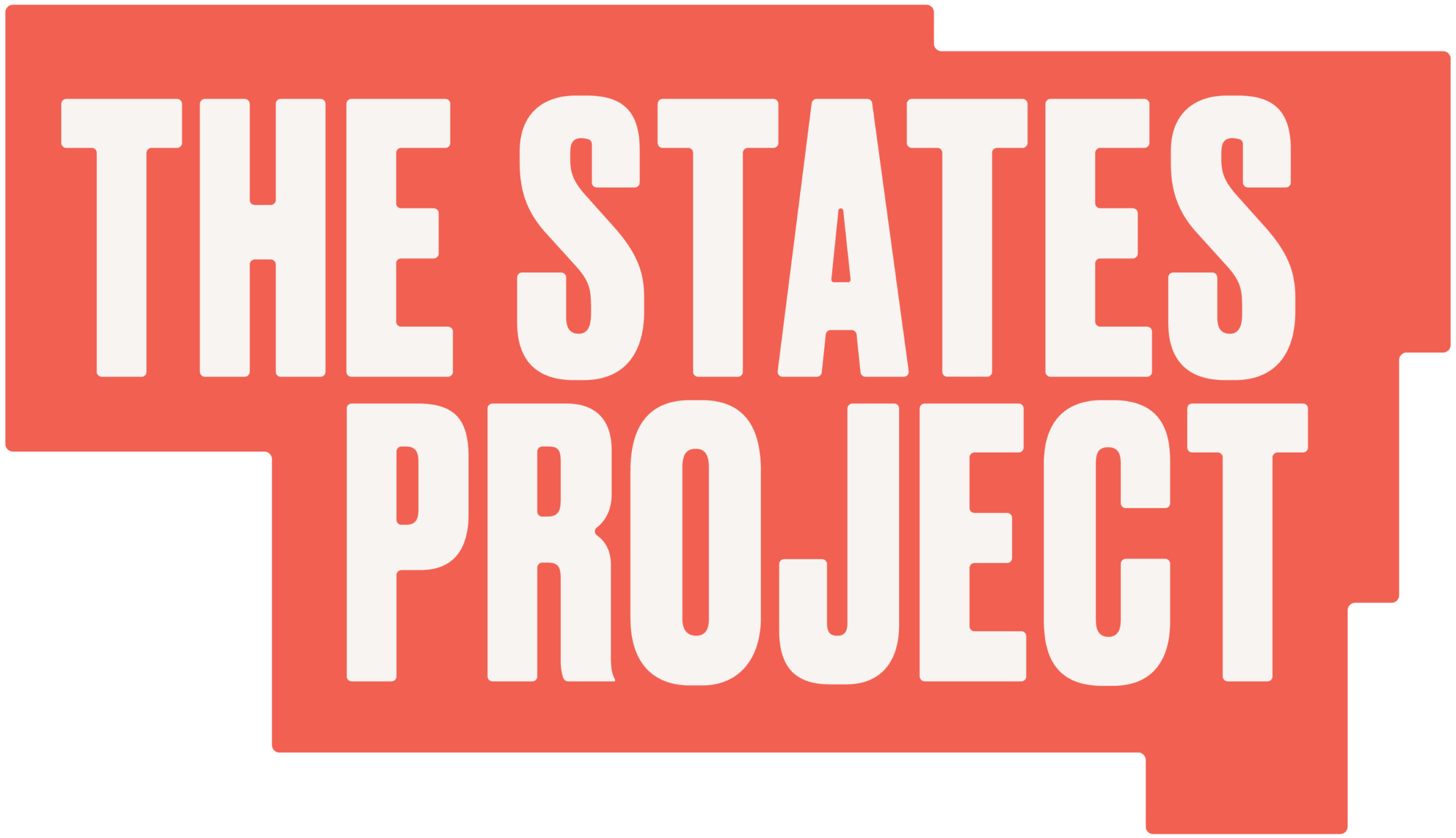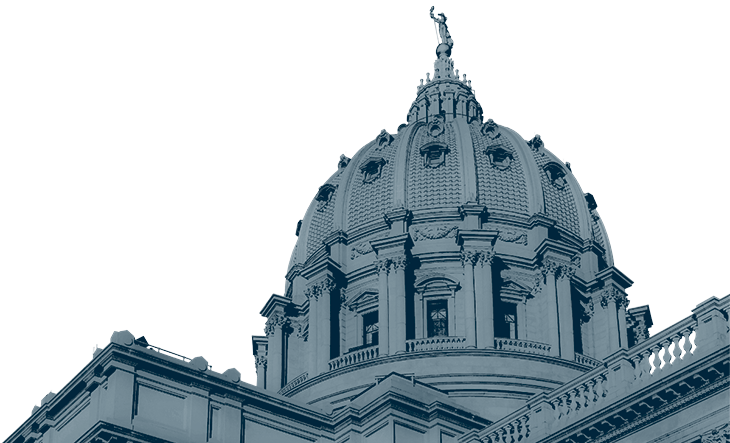As state legislatures across the country continue to map out their agendas for this year’s legislative sessions, new research from The States Project highlights the importance of state legislatures compared to the Presidency and Congress. The research, called “Power Bars,” incorporates data from the 2020 census, existing policy organizations’ research, and our extensive state-level policy database to show how decisions made at the state level directly impact Americans.
That’s important considering people view Congress and the Presidency as having more impact on their lives. According to our polling conducted in Fall 2023, 21% of Americans believe the executive branch holds the most power, followed by Congress at 20%. State legislatures, however, are perceived to have only 11% of the ability to enact changes affecting everyday life.
Our research shows those numbers couldn’t be further from reality. For example, among other highlights mentioned below, over 90% of school funding flows through the states and states now have full control over protections for wetlands and other bodies of water. The evidence is clear: state legislatures have an outsized impact on everything that matters most to us.
The perceived power and importance of state legislatures among Americans also influences donor behavior and campaign funding. In 2022, TSP candidates raised only 8% of what competitive congressional House candidates raised. Additionally, state legislative campaigns received only 5% of the approximately $9 billion total advertising spend, despite their significant impact on day-to-day life, according to Power Bars data.
Following up on their 2023 success in Virginia, in 2024 TSP is leveraging data-driven campaign tactics in Arizona, Kansas, Michigan, Minnesota, Nevada, New Hampshire, and Pennsylvania to establish and maintain governing majorities and prevent rightwing supermajorities.
Looking ahead, here’s a look at the key issues that will likely dominate state legislatures in 2024 — and the work TSP will be doing in the year to come.
Reproductive Rights
Over the last few years, 40 state legislatures have enacted Medicaid expansion, expanding healthcare — and access to reproductive care — for some 240 million people (or approximately 72% of the total US population, according to KFF). Still, millions of Americans, including many in states without expanded Medicaid, also live in states where the state legislature has the final say over post-Dobbs abortion bans, according to TSP research.
- Arizona: The state supreme court is considering whether an extreme abortion ban that’s been on the books since 1864 – a half-century before Arizona even gained statehood – should stand. TSP is working to flip both chambers in the state legislature to combat these attacks on Arizonans’ personal freedoms.
- Virginia: A new governing majority that the States Project helped to build introduced legislation to create a constitutional amendment that would codify abortion access. Proposed constitutional amendments do not require a governor’s signature in the state, but they must pass both legislative chambers in two separate sessions and be approved in a statewide referendum before becoming effective
- Kansas: Last year, Kansans voted in favor of protecting abortion rights, sending a clear message to lawmakers who, in turn, advanced a series of extreme anti-abortion laws through both chambers, overriding Governor Kelly’s vetoes to pass these policies into law. To protect the governor’s veto against the rightwing’s extremist agenda to aggressively undermine personal freedoms and individual rights, TSP is focused on breaking the supermajority in the Kansas House.
Gun Violence Prevention
At least twenty-five state legislatures have enacted gun safety protections like background checks, covering 58% of the population and saving lives. However, there is still work that can be done to further reduce deaths from gun violence:
- Virginia: Fresh off an election in which TSP helped power $4.7 million into candidates to hold the State Senate and flip the House of Delegates, lawmakers in Virginia have filed bills that would ban the sale of assault weapons, including AR-15s, ban high-capacity magazine sales, and prevent people under 21 from having assault weapons.
- Pennsylvania: In 2023, the new House majority had a busy year, working to pass expanded background checks and red flag laws across razor-thin margins. Lawmakers worked together, even crossing the aisle to reduce gun violence and keep guns out of the hands of those who could cause harm to themselves or others. Despite this, they were held back by the rightwing controlled Senate, blocking policies that Americans overwhelmingly favor. This year, TSP is working to end rightwing control of the PA Senate and hold the House, so that lawmakers can better deliver for the residents of the Keystone State.
Cost of Living
The federal minimum wage hasn’t been increased since 2009, leaving the minimum wage at just $7.25/hour for almost 15 years. State lawmakers have noticed, and according to our Power Bars research and the Economic Policy Institute, the 30 state legislatures that have since enacted minimum wage increases have increased minimum wages by $1.5 trillion in aggregate while embracing the chance to give economic opportunity and stability in their states:
- New Hampshire: The narrow state legislature voting margins in New Hampshire means that a lawmaker’s presence or absence can make all the difference. The minority was able to expand quality, affordable healthcare for pregnant and postpartum women, and increase access to affordable childcare. Although bills passed have to be included in the budget to be funded, tying the Senate and flipping the House in New Hampshire would increase the likelihood of impactful legislation like this passing in the future and give lawmakers more leverage to block harmful policies.
- Virginia: Lawmakers in Virginia are advancing policies that put money into people’s pockets. For example, lawmakers introduced a proposal to increase the statewide minimum wage to $15 an hour by January 1, 2026. If enacted into law, this would provide a steady wage and act on the promise to Virginians to improve their quality of life and alleviate economic hardship.
Prescription Drugs
In 2021, nearly 1 in 10 adults aged 18–64 reported not taking medication as prescribed due to cost. Life-saving medication should be affordable for everyone who needs it, and state lawmakers are working to lower the cost of prescription drugs for their constituents:
- Nevada: While Nevada’s state legislature passed policies to lower the cost of prescription drugs and improve the quality of healthcare for millions of Nevadans, rightwing Governor Joe Lombardo vetoed over six dozen bills sent to him by the legislature in 2023, including caps on prescription drug prices, as many Americans are rationing drugs due to the exorbitant costs. One-sixth of all bills vetoed were healthcare-related, blocking efforts to lower costs and improve the quality of healthcare for millions of Nevadans. This year, TSP will be working to expand the majorities in both chambers to help overcome the Governor’s blockade against efforts to cap prescription drug costs and other life-saving policies.
- Michigan: Propelled by a governing majority in the state legislature, which the States Project helped build in 2022, Michigan lawmakers notched several wins this past session, including House Bill 4276 signed by Governor Whitmer that will reduce costs by increasing transparency and expanding oversight of costs associated with prescription drugs. In 2024, lawmakers are looking to pass a bill creating a prescription drug affordability board; this bill passed the Senate in 2023.
Democracy and Voting Rights
After the 2020 election, it is clear the stakes are higher than ever when it comes to protecting our democratic institutions — and state lawmakers have an undeniable hand in shaping the state of democracy in their jurisdictions. According to our Power Bars research, 71% of congressional districts are subject to state legislative control in redistricting, meaning that state lawmakers have major influence over the outcome of elections on every level:
- Nevada: In 2020, Nevada was one of several states that faced a plot involving fraudulent electors attempting to aid Trump in stealing the presidency. This led to the harassment and intimidation of top election officials, allowing election deniers to seize power in key positions that could allow them to directly impact elections moving forward. Legislation was proposed to criminalize fake electors and enhance voter accessibility, but Governor Lombardo vetoed these measures. Our goal for 2024 is to establish veto-proof supermajorities to prioritize pro-democracy policies that protect future elections and improve lives.
- Arizona: In a state with radical rightwing majorities in both chambers of the legislature, protecting democratic institutions is top of mind. In 2023, lawmakers in Arizona’s rightwing majority proposed an invasive bill that would violate the privacy and personal freedoms of voters by posting their unredacted ballot images, names, birthdates, and other identifying information online. This could have deep consequences, including leaving private citizens and public officials vulnerable to doxxing, intimidation, and potential violence from bad actors. Flipping just two seats in each chamber would build a new trifecta in the state with the governing power to protect these personal freedoms and improve lives in the Copper State.
By both building and defending governing power in state legislatures, and investing in data-driven tactics at the state level we can and will protect personal freedoms and drive genuine change for Americans. State legislative races deserve attention and investment — especially in a year with big races at the federal level.



